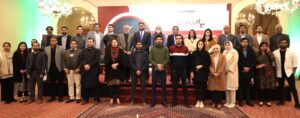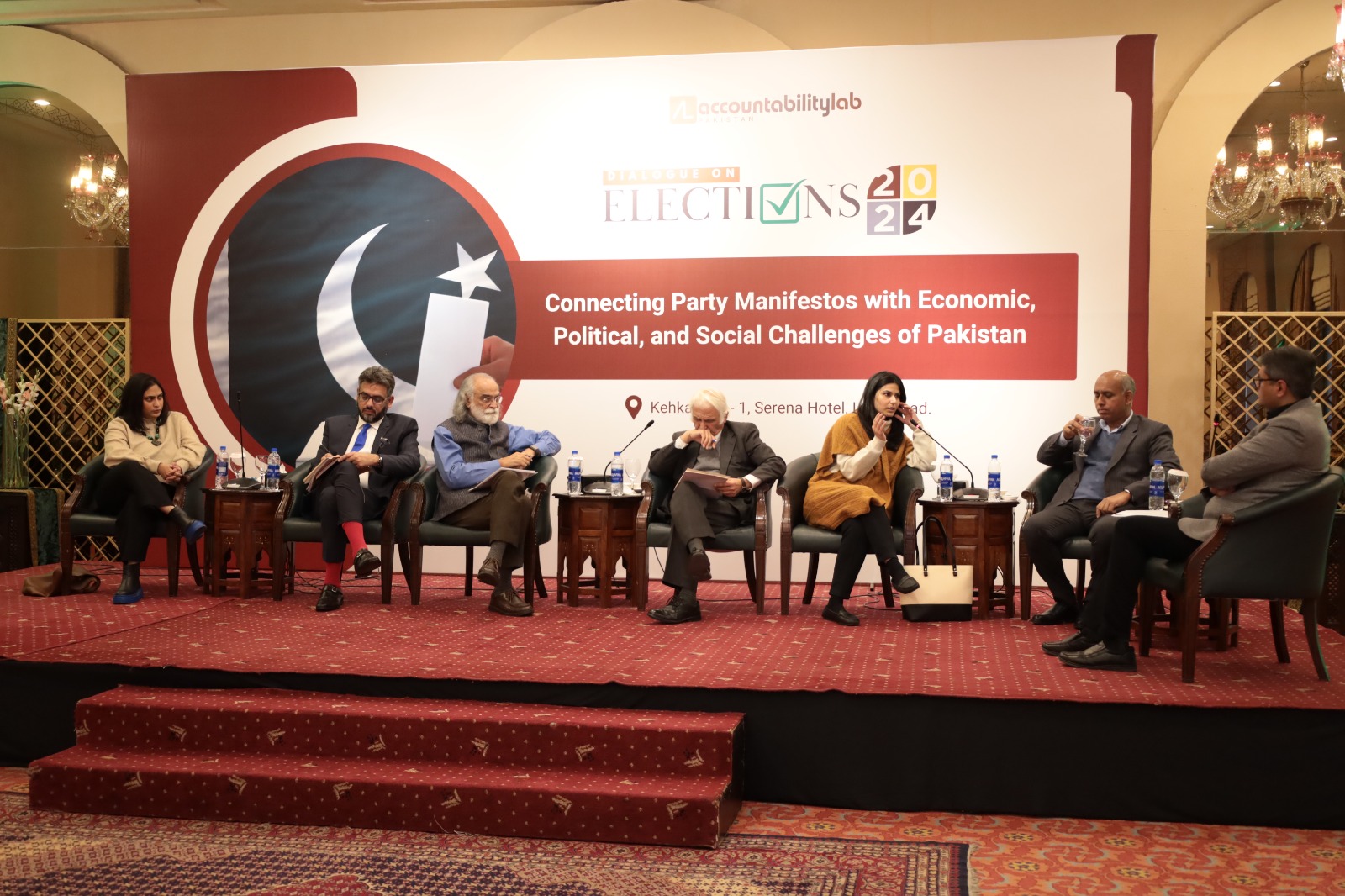WNAM REPORT: “70% of citizens, including both – party members and the general public – are not aware of the substantive contents outlined in party manifestoes. This pervasive lack of awareness contributes significantly to the challenges associated with holding political parties accountable for their pre-election commitments”. This was reiterated by Senator Farhat Ullah Babar during a dialogue session organized by Accountability Lab Pakistan in Islamabad on 1st February.
The dialogue engaged relevant stakeholders including policy makers, civil society organizations, media (including digital media experts) and academia. The objective was to bring the stakeholders together and generate a discussion around the pressing political, social and economic issues prior to the elections and increase public awareness about of political parties’ stance on vital issues. The dialogue also focused on the protection of citizens’ right of expression and its importance for improved accountability and good governance in the country.
The panel for the dialogue comprised of sectoral experts including Senator Farhat Ullah Babar, Sarwar Bari (Senior Expert on Elections’ Monitoring and Governance), Sadaf Khan (Co-founder Media Matters for Democracy), Iftikhar Shirazi (Bureau Chief, Dawn News), Muzammil Aslam (Former Finance Spokesperson) and Farieha Aziz (Co-Founder Bolo Bhi).
As Pakistan faces multifaceted challenges heading into the elections, the foremost among them is the significant downturn in the national economy, characterized by a series of deteriorating economic indicators. Speaking on the need for focus on economic strategy in the manifestoes Muzammil Aslam added “The adverse economic climate has led to widespread concerns and necessitates a comprehensive strategy for economic recovery and stability. The IMFs next program is forecasted to be very tough and therefore the political parties need to focus on comprehensive strategies in their respective manifestoes”
Speaking on the issue of lack of alignment of political parties manifestoes with needs of the masses, Sarwar Bari quoted “The formulation of political party manifestoes is typically undertaken by a select group of elites who may or may not possess a comprehensive understanding of the diverse needs and aspirations of the citizenry. The absence of meaningful citizen participation in this process often results in manifestoes that inadequately align with the actual requirements and concerns of the population. Consequently, there is a discernible disparity between the articulated objectives in manifestoes and the nuanced needs of citizens, emphasizing the imperative for greater inclusivity and citizen engagement in the manifesto development process”
Sadaf Khan emphasized the critical role of citizens in the democratic process, stating, “Political affiliation is not inherently negative; fostering an environment that recognizes and respects this right is pivotal for the promotion of a robust democratic culture.”
Talking about the shrinking digital spaces and use of modern technology and its impact on citizens, Farieha Aziz added “The global trend towards leveraging digitization and artificial intelligence (AI) for economic prosperity and citizen empowerment is notable. Unfortunately, we appear to deviate from this trajectory by imposing restrictions on digital spaces, thereby impeding economic growth and limiting opportunities for our citizens”
Highlighting the challenges faced by media currently, Iftikhar Shirazi reiterated “The role of media as a watchdog in Pakistan is increasingly challenging due to continually evolving media regulatory framework, coupled with the specific editorial guidelines established by media houses. It creates a complex environment that poses difficulties for the journalists in fulfilling its watchdog role effectively”
Similar dialogues will be organized by Accountability Lab Pakistan across Pakistan aiming to monitor post-election performance of the government and their focus on pressing social, economic and political challenges effecting the masses.


